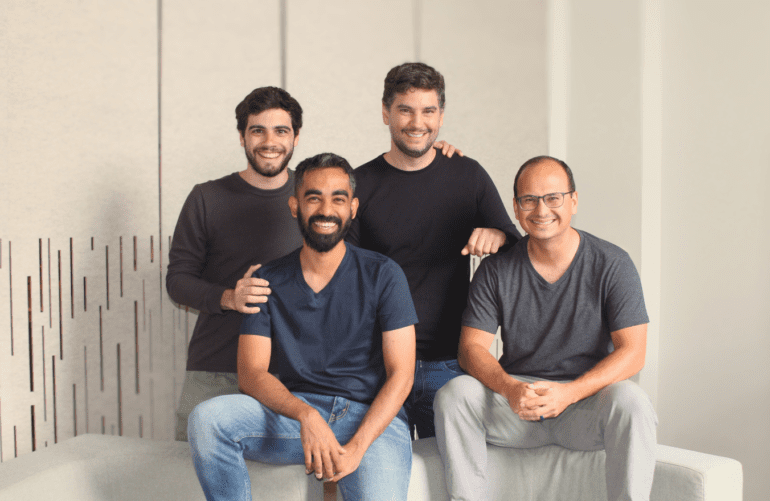TL;DR:
- Hyperplane, a San Francisco startup, secures $6 million in funding led by former Stripe exec Lachy Groom.
- The company specializes in foundation models for banks to predict customer behavior using first-party data.
- Already serving multiple banks in Brazil, Hyperplane aims to expand into the U.S. market.
- The team plans to extend its AI technology to other industries beyond banking.
- Co-founders bring diverse experience, including EdTech and large-scale AI systems at Google and LinkedIn.
- Hyperplane’s goal is to enable banks to build personalized experiences by leveraging their granular customer data.
- Current banking experiences lack personalization, creating an opportunity for Hyperplane’s APIs.
- The company offers modules for audience segmentation and creating lookalike audiences.
- Hyperplane’s Mandelbrot LLM model aids banks in predicting customer churn and primary bank preferences.
- Notable success: A neobank in Brazil increased transaction volume by 46% with Hyperplane’s insights into customer income estimates.
Main AI News:
Hyperplane, a dynamic San Francisco-based startup, is poised to revolutionize the world of banking with its groundbreaking foundation models. In an exciting development, the company has emerged from stealth mode, buoyed by a substantial $6 million funding round. Leading this investment charge is former Stripe executive, Lachy Groom, accompanied by a star-studded lineup of backers, including SV Angel, Clocktower Technology Ventures, Liquid2 Ventures, Soma Capital, Latitud, Atman Capital, Crestone VC, and Norte.
The primary thrust of Hyperplane’s mission is to empower banks with the capability to harness their first-party data effectively. By wielding predictive analytics, the startup aims to assist financial institutions in constructing personalized experiences tailored to predict user behavior.
Already making strides with approximately a dozen banks in Brazil, Hyperplane is now setting its sights on conquering the vast landscape of the United States. While the company’s focal point currently remains exclusively within the financial sector, it harbors ambitions to eventually extend its innovative technology into other diverse industries.
Hyperplane was co-founded by a talented quartet comprising Felipe Lamounier, Daniel Silva, Rohan Ramanath, and Felipe Meneses. Lamounier, the CEO, brings an impressive background with seven years of experience building StartSe, a prominent EdTech startup in Brazil. His partners, Daniel Silva and Rohan Ramanath, have prior experience in developing large-scale AI systems at tech titans Google and LinkedIn.
Ramanath elucidates the core philosophy that ignited Hyperplane’s inception, stating, “The core hypothesis we started with was: what does it take to build a personalization layer for banks across the world?” He emphasizes the importance of harnessing first-party data, akin to tech giants, to cultivate a deeper understanding of consumers and integrate personalization seamlessly into the consumer experience itself.
Lamounier highlights the unique advantage that banks possess in terms of granular customer data, surpassing the reach of tech giants such as Google or Facebook. This invaluable insight into consumer behaviors spans from preferred restaurants to grocery stores, even monitoring ride-sharing preferences. All this data resides in-house, providing banks with an unparalleled opportunity.
Notably, most banks currently offer minimal personalization in their services, presenting a significant opportunity for innovation. In a competitive market like Brazil, where consumers increasingly demand online experiences mirroring their interactions with other digital platforms, Hyperplane steps in to provide banks with the essential APIs to create personalized models swiftly. Importantly, all deployments remain private, with no data sharing. Hyperplane relies on its proprietary models for these groundbreaking initiatives.
Hyperplane presently offers two key modules: one for constructing audience segments and another for generating lookalike audiences, thereby expanding potential target demographics. Ramanath elaborates, “We found that by building task-specific models, we can get a lot more mileage out of building something custom and from the ground up.”
In its latest stride, Hyperplane introduced the Mandelbrot LLM, a model designed to assist banks in predicting crucial events such as customer churn or identifying users who regard a particular bank as their primary financial institution.
Hyperplane proudly attests to the tangible impact of its services. For instance, a neobank in Brazil experienced a staggering 46% increase in transaction volume within its credit limit division, all thanks to Hyperplane’s predictive insights into customer income estimates.
As the financial landscape in Brazil undergoes a pro-competition transformation, Hyperplane stands ready to catalyze this evolution. With its versatile Hyperplane Cloud, the company anticipates effortless scalability across markets and exciting partnerships on the horizon in the United States. Stay tuned for more from this pioneering force in the world of AI and banking.
Conclusion:
Hyperplane’s substantial funding and innovative approach to harnessing first-party data for predictive analytics in banking signal a shift towards more personalized banking experiences. As consumers increasingly seek tailored online interactions, the company’s expansion into the U.S. market and potential diversification into other industries position it as a significant player in the AI-driven financial services sector. This could drive a transformation in how banks engage with customers and offer tailored solutions, ultimately reshaping the competitive landscape in the banking industry.

